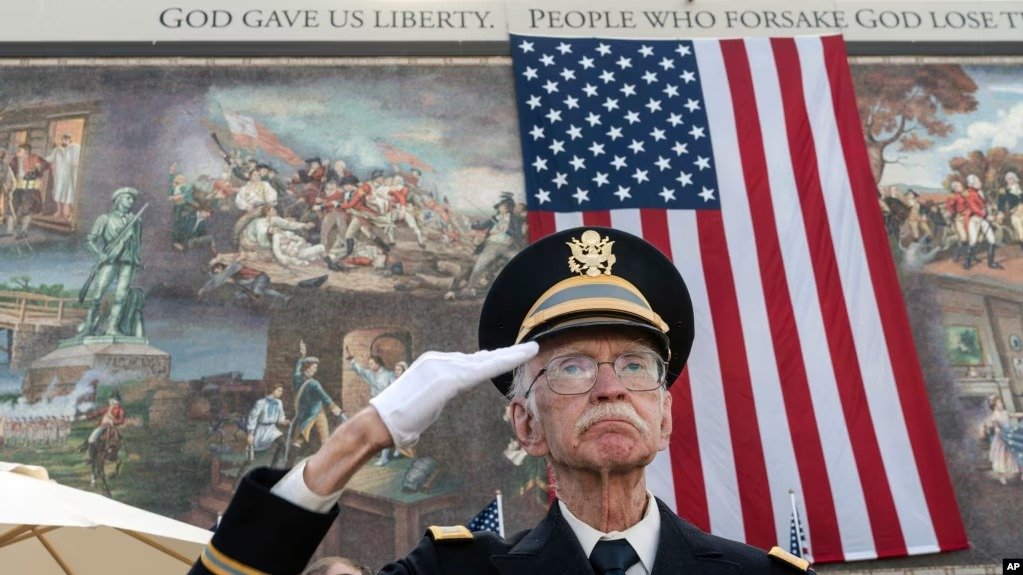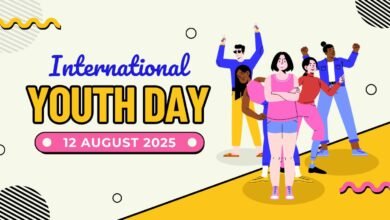The Impact of Veterans Day on Children: Building Gratitude, Understanding, and Civic Responsibility

Veterans Day, originally known as Armistice Day, is a U.S. federal holiday observed on November 11 to honor military veterans of the U.S. Armed Forces. It coincides with Armistice Day and Remembrance Day in other countries, which mark the end of World War I on November 11, 1918. In 1954, after advocacy from U.S. veterans’ organizations, Armistice Day was renamed Veterans Day to honor all U.S. veterans, not just those who died in service. Unlike Memorial Day, which specifically honors those who died in military service, Veterans Day commemorates the service of all veterans. Armed Forces Day, also in May, honors those currently serving in the military, while some U.S. states now observe Women Veterans Day to specifically recognize women who have served.
History and Origins of Veterans Day
The origins of Veterans Day trace back to the end of World War I. On November 11, 1918, at the 11th hour of the 11th day of the 11th month, an armistice (or ceasefire) was declared between the Allied nations and Germany, bringing an end to the hostilities of World War I. The day was originally commemorated as Armistice Day, marking the end of “the war to end all wars.” In 1919, President Woodrow Wilson proclaimed November 11 as Armistice Day, a day of reflection for the soldiers who had died during World War I. The day was celebrated in the U.S. as a holiday, primarily focusing on honoring those who had lost their lives during the war.
After World War II and the Korean War, the U.S. began to recognize that the holiday should honor all veterans, not just those who died in service. In 1954, following advocacy from veterans’ organizations, President Dwight D. Eisenhower signed legislation officially changing the name of the holiday to “Veterans Day,” and expanded its purpose to honor all U.S. military veterans, both living and deceased.
Supporting Veterans Beyond Veterans Day
While Veterans Day provides an opportunity to recognize the contributions of veterans, it is critical that this recognition extends beyond the holiday itself. Veterans often face unique challenges when reintegrating into civilian life. They may struggle with physical disabilities, mental health issues such as PTSD, and difficulty transitioning to new careers. It is important for society to ensure that veterans are supported throughout their lives, not just on one day each year.
Veterans’ Services
Many organizations, both government and nonprofit, are dedicated to providing veterans with the resources they need. The U.S. Department of Veterans Affairs (VA) offers a variety of services, including healthcare, disability compensation, education benefits, and housing assistance. Additionally, numerous nonprofits, such as The Wounded Warrior Project and American Veterans (AMVETS), provide a wide range of support services.
The Importance of Mental Health Care
Mental health care remains a critical issue for many veterans. Programs designed to help veterans cope with the trauma of war such as counseling, therapy, and support groups are essential in ensuring that veterans have the tools they need to heal.
Veterans Employment
Employment programs and initiatives that help veterans transition into the civilian workforce are essential. Various government programs, along with private-sector efforts, are aimed at providing job opportunities and career development for veterans, acknowledging the valuable skills they bring to the workforce.
The Impact of Veterans Day on Children: Fostering Gratitude, Understanding, and Civic Responsibility
Veterans Day, observed annually on November 11, holds significant meaning for the entire nation, particularly in how it shapes children’s understanding of military service, sacrifice, and national identity. While the day primarily honors military veterans, its impact extends to young people by cultivating respect, empathy, and patriotism. Observing Veterans Day in schools, communities, and homes provides children with a unique opportunity to engage with history and understand the personal and collective sacrifices that shape their country.
1. Enhancing Awareness and Understanding of Military Service
For many children, Veterans Day provides their first meaningful exposure to the concept of military service. While they may hear about the military in history classes, Veterans Day helps to humanize the experience by connecting the abstract notion of war and service with real, living individuals, veterans who have dedicated part of their lives to the country.
Educational Programs and Classroom Activities
Many schools across the United States incorporate Veterans Day into their curriculum. Educators often take advantage of the occasion to teach about the history of the military, notable wars, and the sacrifices made by service members. Classrooms may invite local veterans to speak about their experiences, allowing children to hear firsthand accounts of service and sacrifice. These experiences are invaluable in humanizing history and helping children grasp the realities of war, peacekeeping, and national defense.
Classroom activities might include:
- Creating Thank You Cards: Students often make cards or letters for veterans in their communities, which can be distributed through local veterans’ organizations or hospitals. These activities foster a sense of empathy, teaching children to show appreciation for others’ sacrifices.
- History Lessons and Veteran Guest Speakers: Teachers might organize lessons on major wars (e.g., World War II, the Vietnam War, or the War on Terror) and invite veterans to speak. This provides children with concrete examples of what military service entails and how different generations of service members have shaped the nation’s history.
- Patriotic Arts and Crafts: Many schools engage children in art projects, such as creating red, white, and blue decorations, writing poems, or painting pictures that honor veterans. These activities allow children to express their gratitude in creative ways.
Understanding Sacrifice and Patriotism
Veterans Day also provides an important opportunity for children to understand the concept of sacrifice. Through stories and lessons, they learn about the hardships veterans have faced, not only in terms of physical injury or loss of life but also the emotional and psychological tolls that can result from serving in the military. This awareness helps children develop a sense of gratitude for the peace and security they often take for granted.
2. Developing Empathy and Social Awareness
Veterans Day can be a catalyst for teaching children about empathy, compassion, and social responsibility. Children are encouraged to think beyond themselves and consider the challenges faced by others, particularly veterans, who have experienced trauma, loss, and service under difficult circumstances.
Supporting Veterans in the Community
In many communities, veterans are honored through parades, ceremonies, and other public events. Children often participate by attending these events with their families or schools. These observances provide an opportunity for children to engage with veterans in a meaningful way and show support for those who have served. The act of participating in such public displays of gratitude instills a sense of communal responsibility and social awareness.
For instance, children may learn about veterans who struggle with physical disabilities, post-traumatic stress disorder (PTSD), or the challenges of reintegration into civilian life. Such lessons cultivate empathy and foster an understanding of the diverse needs of the veteran community, inspiring future generations to advocate for those who may need assistance.
Promoting Respect for Service and Sacrifice: Veterans Day provides a platform for children to learn about respect for others. Respecting veterans is a way of acknowledging their sacrifice and service to the country, but it also extends to respecting individuals from all walks of life, regardless of background or beliefs. Children who participate in Veterans Day activities often carry with them the broader message that every person deserves recognition for their contributions to society.
3. Fostering a Sense of Civic Duty and National Pride
Veterans Day also nurtures an understanding of civic duty and national pride. By observing this holiday, children are introduced to the idea that every citizen plays a role in the country’s welfare, whether through military service, volunteerism, or community involvement.
Engaging Children in Patriotic Traditions
Veterans Day is one of the key moments in the U.S. calendar for teaching children about patriotic traditions. Schools might start the day with the Pledge of Allegiance, flag-raising ceremonies, or sing patriotic songs such as “The Star-Spangled Banner” or “America the Beautiful.” These rituals help children feel connected to a larger national community and instill pride in their country.
Learning about the historical and cultural significance of American symbols, such as the flag, the bald eagle, and the national anthem, also strengthens their understanding of what it means to be an American. Veterans Day provides an additional layer to this education by showing children the sacrifices that veterans have made to ensure the freedoms these symbols represent.
Instilling Values of Service
Many schools and organizations use Veterans Day as a chance to talk about the importance of serving one’s community. Although military service is the main focus of the holiday, the broader theme of service whether in the form of volunteer work, helping others, or taking on responsibilities within a community is equally emphasized. Veterans Day becomes a springboard for discussions about personal responsibility, duty, and how each individual can contribute to the well-being of society.
4. Encouraging Family Involvement and Reflection: Veterans Day also has a significant impact when observed in the home, as families may reflect on their own military connections, traditions, and the role veterans have played in their personal histories. Children who have family members—parents, grandparents, or even distant relatives who served in the military may use Veterans Day to learn more about those experiences.
Family Dialogues about Service and History
For children with relatives who served, Veterans Day often sparks conversations about the history of their family’s involvement in military service. This can lead to a deeper understanding of the family’s heritage and a personal connection to the broader narrative of the country’s military history. Such conversations allow children to reflect on what it means to serve and sacrifice for one’s country, connecting the individual experiences of their family members to the larger national context.
5. The Psychological and Emotional Benefits for Children: While Veterans Day is a celebration of military service, it also provides emotional and psychological benefits for children, especially those who may have family members currently serving or who have lost someone in service. The day allows children to express their feelings of loss, gratitude, and respect in a healthy way, contributing to their emotional growth.
Processing the Concept of Sacrifice and Heroism
In observing Veterans Day, children can come to terms with difficult concepts such as heroism, sacrifice, and death. Whether through storytelling, discussions, or family rituals, children learn to contextualize these heavy themes in a way that is both meaningful and age-appropriate. This can help them process complex emotions and build resilience.
Conclusion
Veterans Day serves as more than just a day off school or a parade, it’s an opportunity to shape young minds in powerful ways. Through education, community involvement, and family reflection, children gain a deeper understanding of the sacrifices made by veterans and the importance of service, empathy, and patriotism. As children observe and engage with the traditions surrounding Veterans Day, they are not only learning about history but are also building values that will shape them into responsible, compassionate, and civically-minded adults.
By fostering an appreciation for the sacrifices made by veterans and promoting a broader sense of community responsibility, Veterans Day plays a crucial role in shaping the next generation’s character, providing them with the tools to contribute positively to society and uphold the values of freedom and service.
Image Source: https://learningenglish.voanews.com/





